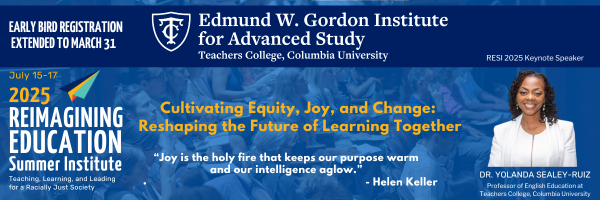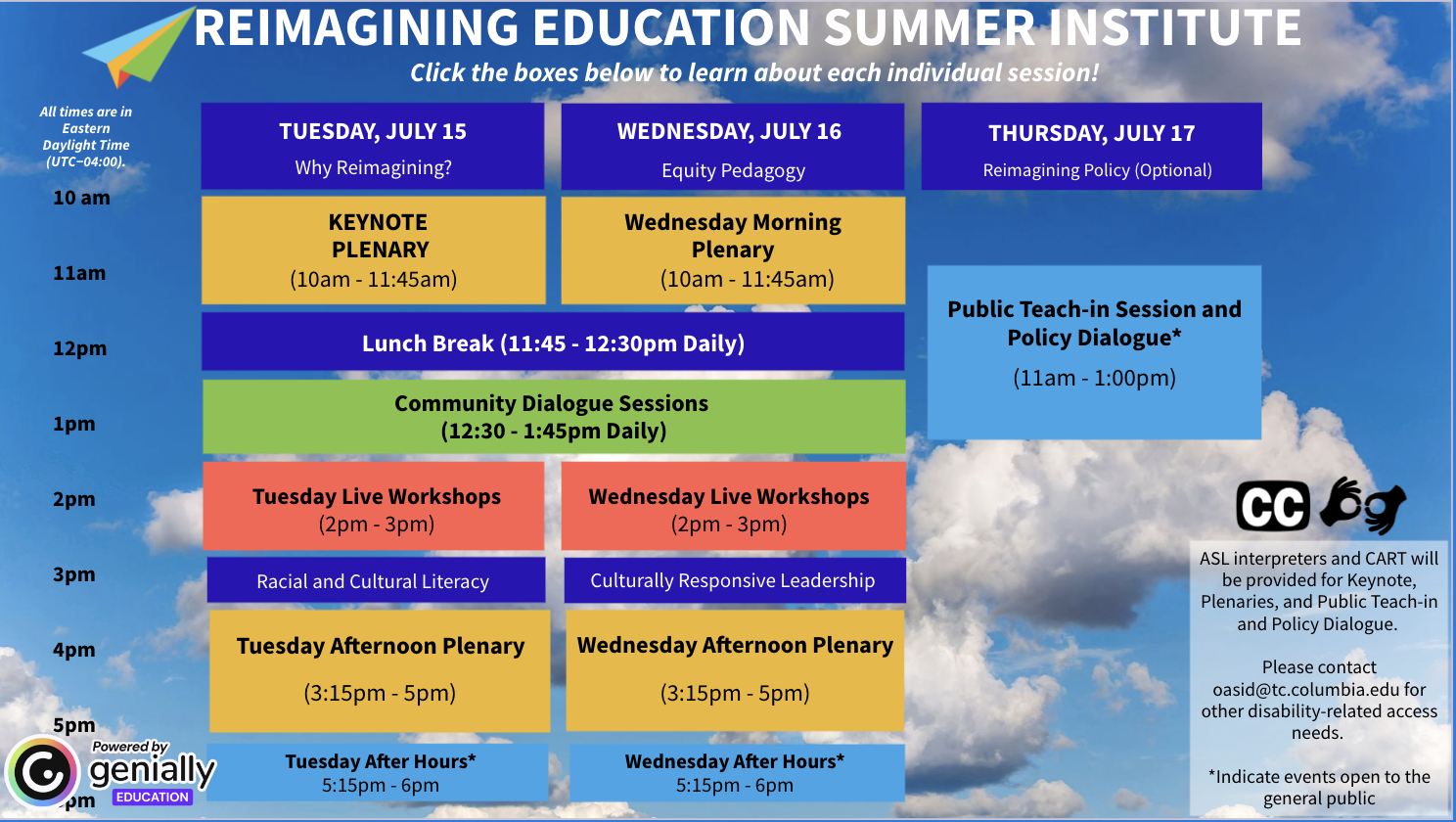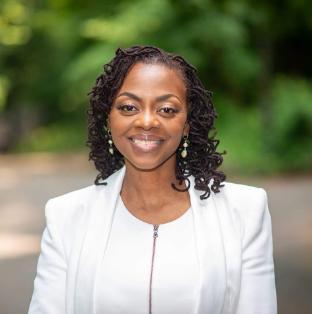
Schedule

Overview
Reimagining Education: Teaching, Learning and Leading for a Racially Just Society Summer Institute
Teachers College, Columbia University has a faculty with more expertise on issues of race and education than many other graduate schools of education, whose work in the field individually and collectively seeks to reimagine education for a more racially just society. The faculty along with TC graduate students work together under the leadership of their colleague Amy Stuart Wells to co-construct the Reimagining Education Summer Institute (RESI) as an annual three-day professional development institute held in July in New York City and online. Each year, the team comes together to reserve space for the learning community to explore, make sense of, and provide tangible support to reimagine education for a more racially just society. RESI has grown from 130 participants in 2016 to 1,200 in 2020. Over the years, participants have come from schools in 30 different states and several countries, including Egypt, Brazil, Canada, Spain, and China. The three-day Institute is organized around four themes of Why Reimagine? Racial and Cultural Literacy, Equity Pedagogy, and Culturally Responsive Leadership. How can you prepare to address the educational inequalities and widening opportunity gap worsened by the pandemic? How can you lead the much-needed shift in our field away from an over-reliance on standardized tests and toward a more student-centered focus on teaching and learning?
Teachers College’s Reimagining Education: Teaching, Learning and Leading for a Racially Just Society Summer Institute provides the knowledge, support and community of professionals you need to become a racially literate and culturally relevant educator. Without these tools, you cannot support your students’ academic, social and emotional well-being or address injustice in our educational system and society. The future of our diverse democracy and the inter-cultural understanding needed to sustain it depends on our schools’ ability to do the required work to educate and integrate.
It’s Just Good Teaching.
Our professional development Summer Institute is finally returning for the 9th year after taking a transition year. This beloved institute we affectionately know as RESI will be virtually held July 15-16, 2025, at an affordable price for educators who need to earn PD credits.
Featured Keynote

Dr. Yolanda Sealey-Ruiz
To request disability-related accommodations, please fill out the Accommodations Request Form or contact the Office of Access and Services for Individuals with Disabilities (OASID) at oasid@tc.edu, (212) 678-3689, (646) 755-3144 video phone, as early as possible.
ASL interpreters and CART will be provided for Keynote, Plenaries, and Public Teach-in and Policy Dialogue. Please contact oasid@tc.columbia.edu for other disability-related access needs
Facilitated Small-Group Dialogue Sessions (Pool Parties)
The pool parties, or small-group dialogue sessions, are spaces where participants deepen their learning and build community with others. Similar to school homerooms, each pool party is composed of a diverse group of participants. The facilitator(s) meet with the same group daily to lead the participants through activities designed for engagement with the week’s content, connection with other participants, and self-reflection. Educators explore how insights gained from workshops and plenaries will actively inform their own practice. Participants will be encouraged to engage in critical conversations in order to challenge assumptions and spark innovation for their work moving forward. Participants emerge with a vision of reimagined education and the understanding needed to realize this vision.